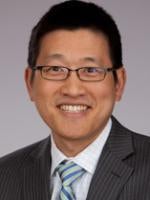The U.S. Citizenship and Immigration Services (USCIS) received over 236,000 H-1B visa applications for fiscal year (FY) 2017 in the first week of April. That number far exceeds the statutory cap of 65,000 H-1B visas under the general category and the 20,000 visas under the master’s degree cap. But, it is only 3,000 more petitions than were filed last year, and substantially less than many attorneys and employers were expecting. That is good news for H-1B petitioners, who face better odds at roughly 36% selection rates, but is a sign that the tech economy may be plateauing or new increased fees for employers submitting high volumes of applications are taking effect.
Lottery System Used to Select Petitions
U.S. businesses use the H-1B program to employ foreign workers in occupations that require highly specialized knowledge in fields such as science, engineering, and computer programming. On April 9, 2016, USCIS used its computer-generated random selection process, or lottery, to select a sufficient number of H-1B petitions to meet the total 85,000 cap. The agency first conducted the selection process for the advanced degree exemption. All unselected advanced degree petitions then became part of the lottery selection process for the 65,000 general category limit.
USCIS earlier announced that it will begin premium processing for selected H-1B cap cases no later than May 16, 2016. No start date has been announced for regular processing cases, although historically regular processing receipt notices have been issued in May. All unselected petitions will be rejected and returned with their filing fees.
Not Selected? Consider Alternative Visa Options
If you need to hire foreign professionals but your H-1B visa petition was not selected, you may want to explore other popular alternatives. Consider the following alternative employment visas and options:
-
Lateral Hire of H-1B Workers. The statutory H-1B visa cap applies only to new H-1B petitions, meaning that employers may be able to hire foreign workers who currently hold H-1B visas through another employer. Current H-1B employees generally may extend their visa status for up to six years and in some cases, even longer. In addition, foreign nationals who previously held H-1B status but are not currently employed in the U.S. are exempt from the annual H-1B cap and may be returned to that status for the rest of their six-year H-1B visa period.
-
F-1 OPT STEM Extensions. Science, tech, engineering, and math (STEM) graduates may apply for an extension to their one year Optional Practical Training (OPT). The extension period soon will be increased from 17 to 24 months. The 17-month extension period under the current STEM OPT rules will apply to applications filed through May 9, 2016, but I-765 Applications for Employment Authorization filed after May 10, 2016 may seek the longer 24-month extension available under the new rule. F-1 employers must participate in E-Verify in order for the STEM graduate to be eligible for this extension.
-
TN Visa. The TN visa is a three-year nonimmigrant visa for Canadian and Mexican citizens and authorizes the individual to work and live temporarily in the U.S. Almost all TN positions require a Bachelor’s degree except for a Scientific Technician or Management Consultant position, but unlike the H-1B, there is no numerical limitation to the number of TN visas issued. TN nonimmigrant workers must show that they will be working in one of sixty TN approved occupations, such as nurses, attorneys, engineers, management consultants, and scientific technicians.
-
E-3 Australian Specialty Occupation Visa. An E-3 visa allows Australian citizens to enter the U.S. for a two-year period to work in a specialty occupation, which is defined as any position which normally requires a Bachelor’s degree in a specific major or concentration (i.e. engineer, nurse, scientist, software developers, and accountants). Solely managerial or sales roles do not qualify as specialty occupations. E-3 visas are limited to 10,000 per year.
-
L-1B Specialized Knowledge Worker Visa. Workers who currently are outside the U.S. working for a foreign parent or subsidiary company related to a U.S. company and who have done so for at least one out of the last three years may qualify for the L-1B intercompany transfer for specialized knowledge workers. The individual must hold specialized knowledge which is distinguished from knowledge held by others in the company and industry.
-
F-1 Student Status. Non-U.S. citizens may choose to return to school and change their status to F-1. Depending on his or her degree program, the international student’s office may allow the individual to work off-campus part time under Curricular Practical Training. Students should contact their university’s international student’s office for additional information



 />i
/>i

